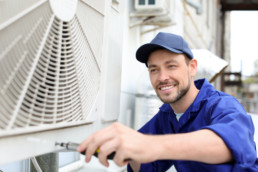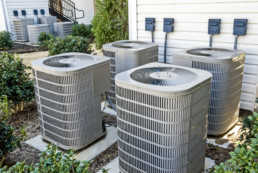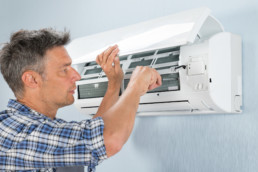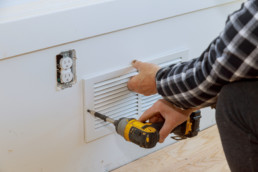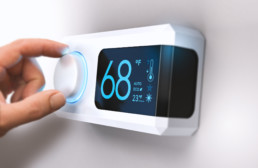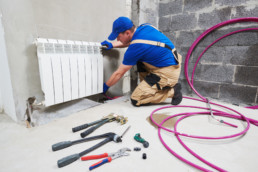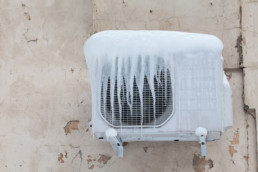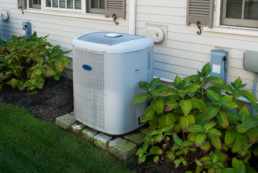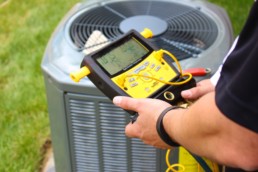5 Moments You'll Be Glad You Have the Number of an After Hours AC Repair
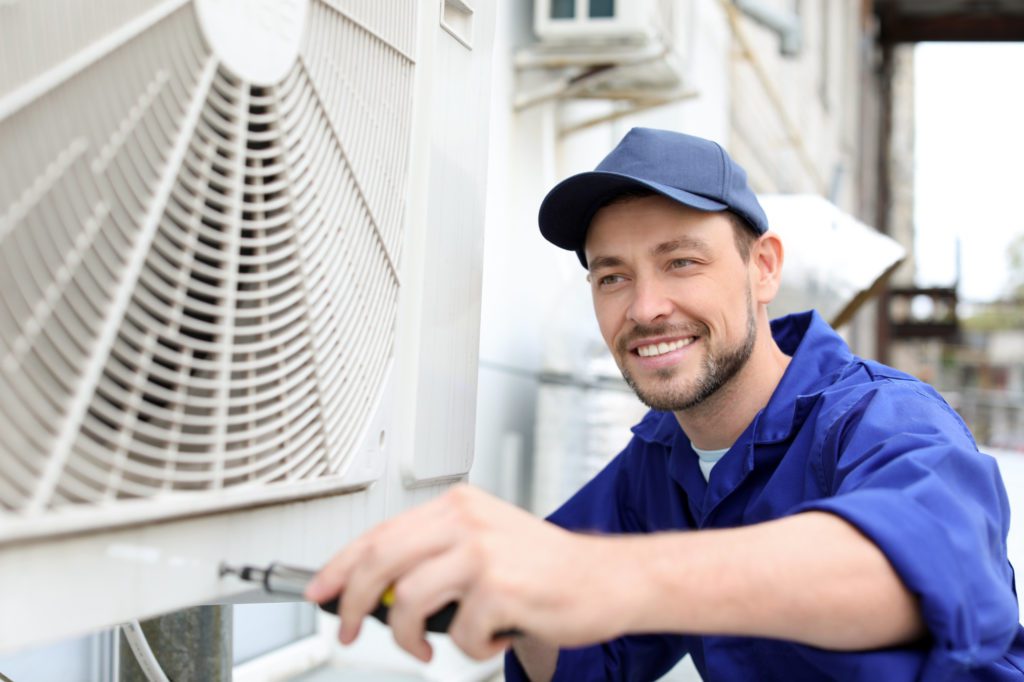
Today, many of us take central air conditioning for granted. Back in the early 20th Century, however, it was still quite a novelty. The first home to boast central AC was a mansion built in 1913 by a man called Charles "Spend-A-Million" Gates (the nickname came from his admirable habit of giving away his money). The home took up three city lots and also featured solid gold plumbing. Sadly, Spend-A-Million never got to enjoy his luxurious new digs; he died on a hunting trip prior to the mansion's completion.
It's only when your HVAC system malfunctions, leaving you to swelter during the dog days, that you truly appreciate it. Here are some other occasions that merit a phone call to an after-hours AC repair company.
1. When You Have Weekend House Guests
Whether they're far-flung friends or rarely-seen relatives, you want guests to feel comfortable in your home. Should your air conditioning go on the fritz just before they're due to arrive, or conk out mid-visit, a good time will be had by no one at all. Contact a reliable after hours AC pro to take care of the problem so you can get back to enjoying your company in a cool, comfortable atmosphere.
2. If You Have Allergies
Spring allergies get a lot of press, but as late summer allergy sufferers can tell you, the incessant sneezing, sniffling and congestion are a bummer any time of year. Air conditioning is a godsend for such folks. Remember that AC doesn't just cool the air; it improves air quality as well, by filtering out allergens and airborne particulate.
3. Right Before a Special Occasion
People who wear makeup often dread the advent of hot weather. Sweating while you're trying to apply foundation or powder seriously complicates matters! That's especially true if your AC unit stops working just as you're getting ready for a big event -- think a wedding, prom, photo shoot, job interview, first date, or important client meeting. If ever there was a time to call for emergency AC repair, this is it!
4. When A Heat Wave Is In Effect
Let's be honest: having the air conditioning go on the blink is pretty much the definition of a first-world problem. However, there are some instances in which it's essential for people's health. That's the case if you have an elderly person in your household. Seniors are much more vulnerable to the ill effects of high temperatures than younger cohorts are. Without access to an air-conditioned environment, senior citizens are at risk for heat exhaustion and heat stroke. In fact, of the over 12,000 Americans who die of heat-related causes each year, fully 80% are over the age of 60.
5. There's A Global Pandemic
With COVID-19 still seriously impacting our careers, our financial state, and even our very futures, stress levels are already high.
Many of us are cooped up in our homes for much of the time, and it doesn't take long for family members to become irritable and snappish. Add in an AC system that doesn't do its job properly, and you're going to experience significant spike in both temperatures and tempers.
Keeping your cool both literally and figuratively is one of the essential keys to surviving these unprecedented times.
After Hours AC Repair to the Rescue!
Savvy homeowners have already done their research and know a company that provides reliable after hours AC repair. That way, they don't have to waste time googling and reading reviews; all it takes is a phone call and help will be on the way.
For a fast response and expert service, look no further than Ellsworth's. Contact us today!
Central Air vs Mini Split: Which System Is Right for Your Home?
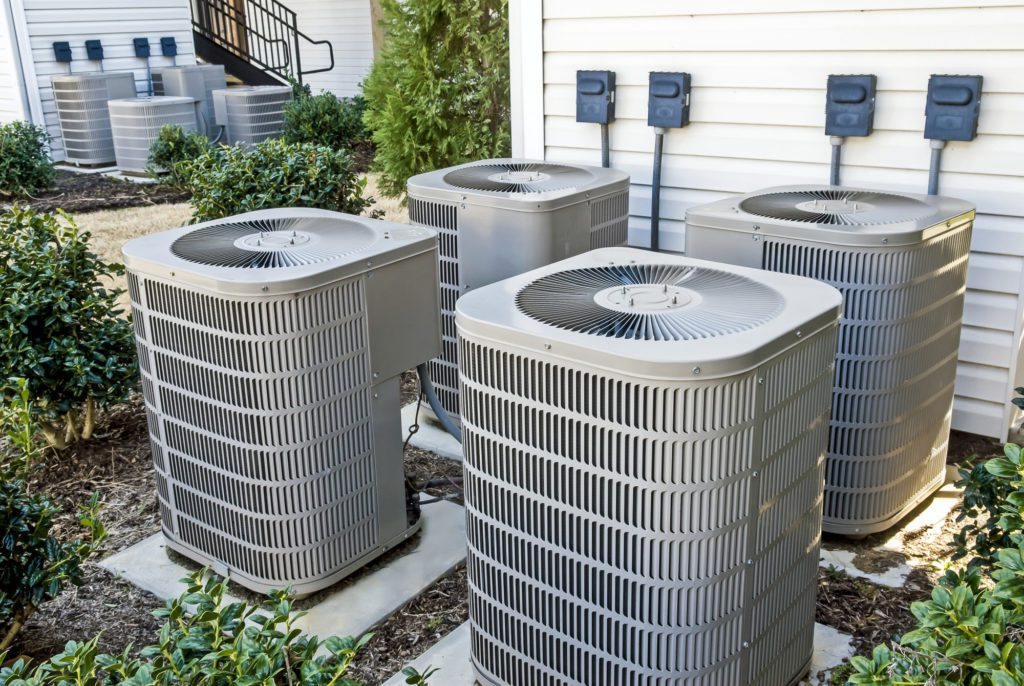
Air conditioning systems are important to nearly 90% of US homes that have them. In South Florida, the number may be closer to 100% due to higher temperatures. It's close to impossible to survive without air conditioning in such a hot state.
When you move into a new place, deciding on a central air vs mini-split system is a must. There are major differences between the two, and installing the wrong one can cost you. If you need help deciding which of the two is right for you, keep reading.
Central Air System
When you have a central air system, the air is constantly being circulated throughout the entire home. Central units have a single thermostat that sets the entire house at one temperature. Ducts are installed in the ceilings, floors, or walls that carry air to and back the system.
Startup/Overall Cost and Maintainance
Central air systems could be about 30% cheaper in regards to initial cost. If you keep your system running regularly may require more service calls. Cleaning the system to prevent dust is important, and it may be harder to do or reach without a professional.
Installation and Durability
You can expect to get up to 15 years out of your central A/C. If you are installing it for the first time in your home without ducts, there's more work involved. It's more attractive to homeowners because it's less visible.
Mini-Split System
Unlike central A/C systems, a mini-split system is ideal for people who live in a smaller place. It's also great for those who want cool air or heat in certain rooms. The main advantage is that it provides better temperature control, especially for people who are comfortable with different temperatures in the house.
Startup and Maintainance Cost
Overall mini-split systems cost more depending on how many you purchase. The higher cost is offset by the lower maintenance costs and ease of cleaning.
Most people can take care of any issues themselves. You may save more money on bills too because have air running only in certain rooms.
Installation and Durability
If you take care of your mini-split, the system can last you as much as 20 years. The install is much easier to complete because its less invasive. Installers may not have to tear your wall or ceiling. However, it's quite bulky and distracting for those who care about design and esthetic.
Comparing Central Air vs Mini-Split
When you are living in a hot, humid state like Florida, you can expect to be best friends with your A/C throughout the year. Most cities in South Florida, like Naples, have attractions that make the 80-90s temperature perfect.
However, once you come back from the beach, an attraction, or even work, all you want to do is cool off in your home. Finding out whether getting a central air vs mini-split system makes a difference in cost-effectiveness. The right one in your home can provide you cool air at all times while its runnings.
If you live in Fort Myers or the surrounding area and want to get one of these systems installed, you can save even more money by taking advantage of these savings deals. Feel free to contact us to set an appointment.
6 Signs You Need an AC Unit Repair and Not a Replacement
Your air conditioner is full of hot air. It's unfortunate, but it happens.
Did you know that AC unit repair is 62.5% less than replacement costs on average?
Of course, there are some major things to consider when deciding to repair or replace. The biggest thing to consider is the age of the unit and how good the maintenance of the system as a whole has been.
But you're a cool customer—you won't freeze when the decision to repair or replace comes. Why?
Because when we're done with you, it'll be a breeze.
Six Common AC Repairs
1. Thermostat
An all-important part of the system is the thermostat, to set the air conditioning system to work at your desired temperature.
If the unit is battery operated and your AC won't turn on, it's a good chance that this is the problem. If not, check the breaker, and reset it.
2. Frozen Condenser or Evaporator
Centralized air conditioning is a split system. The outside unit is the condensing unit. The inside unit holds the evaporator and blower.
If you see that either is a block of ice there could be a problem with low outside temperatures, a faulty contactor, or insufficient airflow. Insufficient airflow could be caused by a dirty air filter.
3. Blowing Lukewarm Air
The ductwork pulls air from inside the home across the evaporator and cools the air before blowing it through the ducts. If the filter is clogged, that limits the amount of air going from the return to the evaporator. This can cause frozen condensers or evaporators and lukewarm air from the blower motor.
4. Noisy Operation
The air handler portion uses a circulation blower fan and motor to push air through the ducts of your home and out of the vents. If you hear a rattling or banging noise, it's likely the fan that is now wobbling and requires maintenance or replacement.
5. Inconsistent Air Temperature
If the filter is clean and airflow seems to be good it could be a refrigeration problem. Especially if you hear a hissing noise it denotes refrigerant loss.
These symptoms could mean you have a leak of refrigerant and will definitely need a check. Depending on where the leak is found, it could be an easy fix.
6. AC Won't Turn On
If your thermostat is fine, but it won't turn on, it could be a problem with contactors. If your system routinely turns on and off, it could wear out the contacts. Electrical connections don't need to be an expensive repair but require technical knowledge.
AC Unit Repair VS Replacement
As we said at the outset, the price of repair of a major part is much much lower than replacement. After about twenty years you should replace the system or it will start breaking down, even with good maintenance.
If you have an older system from fifteen to twenty years, it might be better to replace it, but only a skilled technician could tell you for sure. If it is a younger system, including vents and ducts, then it could just need some repair and a more rigorous maintenance schedule.
It's also possible that it was incorrectly designed and installed, to begin with.
Time to Chill
Now that your AC unit repair questions have answers you can chill out and relax.
There's a lot of parts involved in repair or replacement, but having information is half the battle. So now you can grab a mojito and enjoy your summer heat, knowing you can move the party indoors if needed.
While you're at it, check out our great maintenance membership club and stay frosty during 2020!
How to Prepare Your House for a Hurricane: 5 Helpful Tips

Hurricane season is here. Is your home ready to withstand a storm? NOAA has already predicted an above-normal hurricane season, so now is the time to think about how you'll prepare your home for any potential storms.
The good news is that you have time before the peak of the season to figure out how to prepare your house for a hurricane. We've got 5 tips for you to help you make sure your home is as protected as it can be. Read on to learn more.
1. Cover Your Air Conditioner
Your outdoor air conditioning unit it susceptible to any flying debris or large items that are not secured outside. Check with your air conditioner manufacturer to see what they recommend. Some covers will void the warranty, so make sure that whatever you cover the unit with will not impact your warranty.
It's also wise to have preventative maintenance done on your unit at the start of each season (the start of summer coincides with the start of hurricane season) to make sure everything is working properly.
2. Install Surge Protection
A whole-home surge protector is a relatively inexpensive way to protect your home from any power surges or power flickering. They are typically connected to your home's electrical service box and will keep any harmful electrical currents from impacting your home in the event of a power surge.
This is especially important for appliances like your air conditioner, as a power surge could destroy the entire unit. You should also turn your air conditioner off during a hurricane, as repeated power interruptions can damage the unit.
3. Secure Outdoor Units
Many homes built in Florida use a hurricane pad for the outdoor air conditioner unit. These pads are heavier than normal concrete pads and meet code requirements for hurricane protection. When building your home or installing a new air conditioner, make sure that a hurricane pad is used.
If you don't have a hurricane pad, you can also secure your outdoor unit with hurricane straps, or take an extra level of protection by using hurricane straps attached to a hurricane pad.
4. Stock Your Emergency Kit
A well-stocked emergency kit is one of the most important things to do to prepare for hurricane season. Things like water, non-perishable food, batteries, chargers, and flashlights are necessary, as a loss of power that could last several days or even weeks is a real possibility.
You may also want to consider a home generator as well, to power your house even in the event of a power failure. Florida has a period of time every year where hurricane supplies are tax-free. Take advantage of this, especially for a big purchase like a generator.
5. Secure Outdoor Areas
Any outdoor furniture or other items become air-borne missiles in a hurricane. Make sure to secure this furniture with straps or bring it inside. Flying lanai furniture can do a lot of damage to your home and your air conditioning unit outside.
You also don't want to have to fish it all out of your pool after a hurricane, so do yourself a favor and make sure it's secured.
How To Prepare Your House for a Hurricane 101
Use these tips for how to prepare your house for a hurricane to get ready for the upcoming hurricane season. One of the most important things you can do now is to stock your emergency kit and do preventative maintenance on your HVAC unit.
Contact us today to come out to make sure your unit is ready for hurricane season.
Stuck Inside? Here's How to Improve Indoor Air Quality Like a Pro!
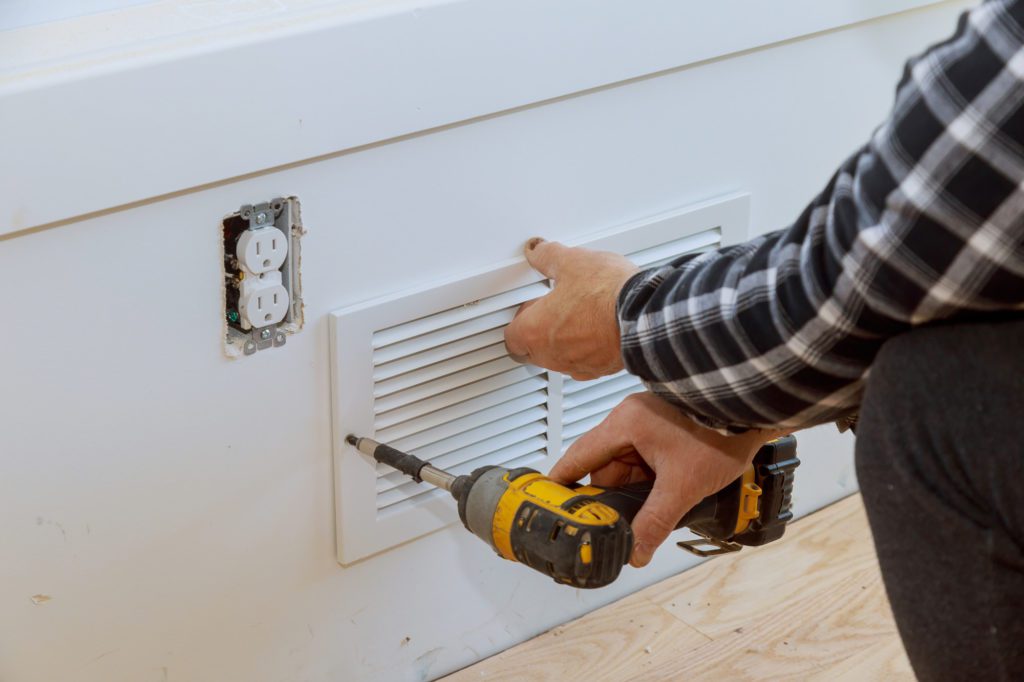
Did you know that the air inside the house (where Americans spend 90% of their time) often has two to five times more pollutants than outdoor air?
When people think about air pollution, they focus on the outdoors. However, indoor air quality also needs a lot more scrutiny as it has a more significant impact on your health than you imagine.
Here’s a quick look at four vital ways you can improve the air quality in your home.
1. Ventilate the Space
Before you sink your teeth into more complicated solutions for improving air quality indoors, you need to tackle the basics.
Does your home have adequate air flowing to expel stagnant air?
If not, make it a habit to open your windows and doors as that boosts circulation and rejuvenates the air quality within your home.
But what of those who live in cities or other areas where the air is full of pollutants?
Well, one tip is to identify the time of day when there's the least dust and other contaminants in the air for you to open your window and doors and promote air circulation.
2. Install Cooking Vents
Although it may come as a curious fact to many, the kitchen is the one area of your home through which air pollutants enter your house.
For example, when you use a gas stove, you’re releasing harmful contaminants such as carbon monoxide and nitrogen dioxide. Even if you switch to an electric over, you’ll still be producing these same pollutants only at a lower level.
Thus, you should be turning on your kitchen vent when you begin cooking to improve the air quality.
The cooking vent can be part of the door frame or window in your kitchen if you don’t plan on doing more work to fit it. Alternatively, the vent can also come as a stand-alone frame that you can retrofit at will.
3. Clean Your Carpet and Rugs Regularly
From the moment you install rugs or carpets in your home, they begin acting as their air filter. The rugs and carpets will trap particles and dust within their fibers over time.
The longer you go without cleaning your rugs and carpets, the more dust and particles that accumulate in them.
To avoid polluting your air in this manner, you should institute a weekly cleaning regimen for all rugs and carpets in your home.
4. Regularly Maintain Your HVAC Unit
Much like the carpet and rugs in your home, your HVAC unit works to trap dust and other pollutants in the air. That leads to building up of these pollutants in your system.
When you’re looking for the right HVAC maintenance plan, you need to zero on how regular it addresses air filters and ducts.
A good HVAC maintenance plan will ensure air filters are changed every 30 days (for fiberglass ones) or six months (for pleated filters).
Additionally, such a plan should factor in duct inspection every three to five years if you're to avoid the build-up and circulation of contaminants.
Lift the Indoor Air Quality in Your Home
You spend more time indoors than outside, which makes the quality of indoor air around you a more critical issue. Make it a habit to allow for more air circulation within the home or office while also ensuring you regularly maintain the HVAC system for you to maintain high air quality indoors.
Ellsworth's Heating & Cooling is a certified and multi-award-winning air conditioning company passionate about exceeding customer expectations. Talk to us today for air conditioning services that put your needs first.
Why is My Air Conditioner Not Turning On? This is Everything to Know
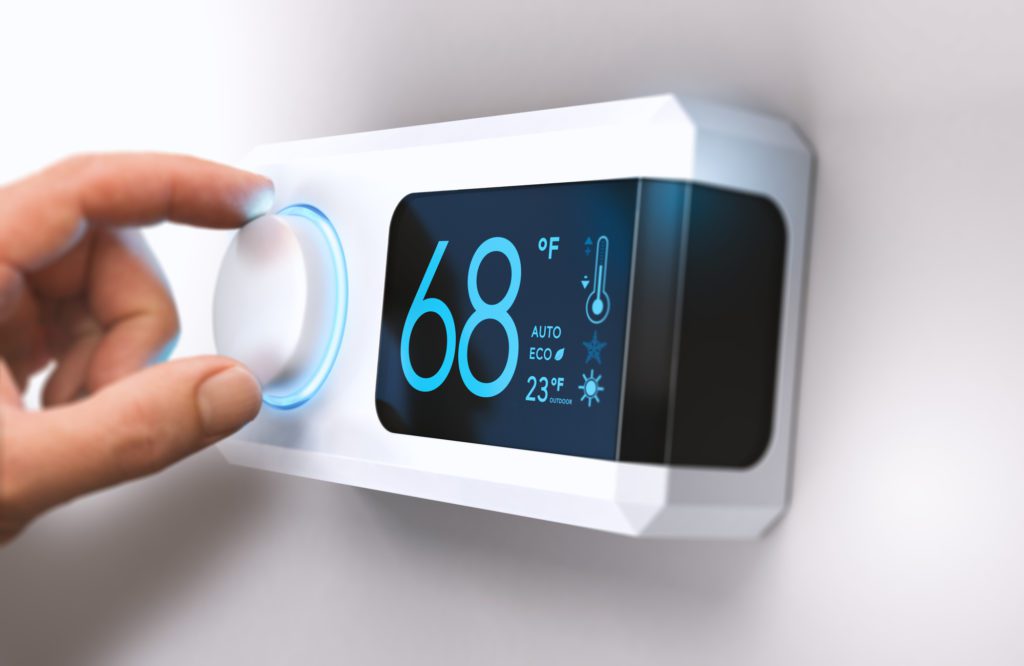
It's a hot summer day, and you switch on the AC. After a few minutes, you notice your air conditioner is not turning on.
You don't know why the AC is not working, and you have no expertise in AC repair.
What can you do?
If your AC is not coming on, you may have a circuit breaker problem that prevents unit functionality. You may encounter the same circuit breaker problem if the condenser unit won't work either. In both cases, you can reset the circuit breakers to fix the issue.
If a reset fails, you may have to hire a professional to remedy the problem. This article will provide a comprehensive guideline on AC problems. Read further if you wish to know more.
Circuit Breaker Remedies
A flipped circuit breaker means that your AC unit may have overheated while in operation. A circuit breaker issue benefits your home because it prevents house fires.
You may have a circuit breaker issue for the following reasons:
- Old appliances
- Units consume too much electricity
- Too many appliances working at once
Check the circuit breaker panel of your home and look for any flipped switches. Return the breaker to its normal setting, and check your AC unit.
Thermostat Problem
If the circuit breaker isn't the issue, you could have a faulty thermostat. A broken thermostat cannot send signals to your unit.
The following issues could cause a thermostat malfunction:
- Dead batteries
- Breaker issue
- Defective panel fuses
To spur your thermostat into action, check the electrical or mechanical components of the unit for any signs of debris or soot. From there, use compressed air to clean the dirty areas. Further, check the wiring and other parts for signs of corrosion.
You can also replace the thermostat outright. When all else fails, you may have to hire a professional for further guidance.
Dirty AC Filter
Even though a clogged filter is less likely to shut down your AC entirely, it's still a likely factor. A dirty filter can cause airflow issues and hamper the performance of the unit.
- Example: A dirty air filter that allows debris and dirt into the unit can clog the mechanics. Excess particles in your unit may cause wear and tear that will lead to an eventual breakdown.
Check the filter if you haven't replaced it in over three months. You can find the filter near the air duct. You could also find it in the blower system if have an AC/heater combo.
Look through the owner's manual for the proper size and filter type. You can buy the filter from your local hardware store, or you can buy it online.
Air Conditioner Is Not Turning On
If your air conditioner is not turning on after numerous troubleshooting measures, contact an AC professional. You'll find that many AC repairmen offer quality rates that can fit within your budget.
Are you frustrated that your AC won't turn on? Contact us today to learn how an AC professional can save you the hassle of exhaustive DIY repairs.
How To Find The Right HVAC Maintenance Plan To Fit Your Budget Needs
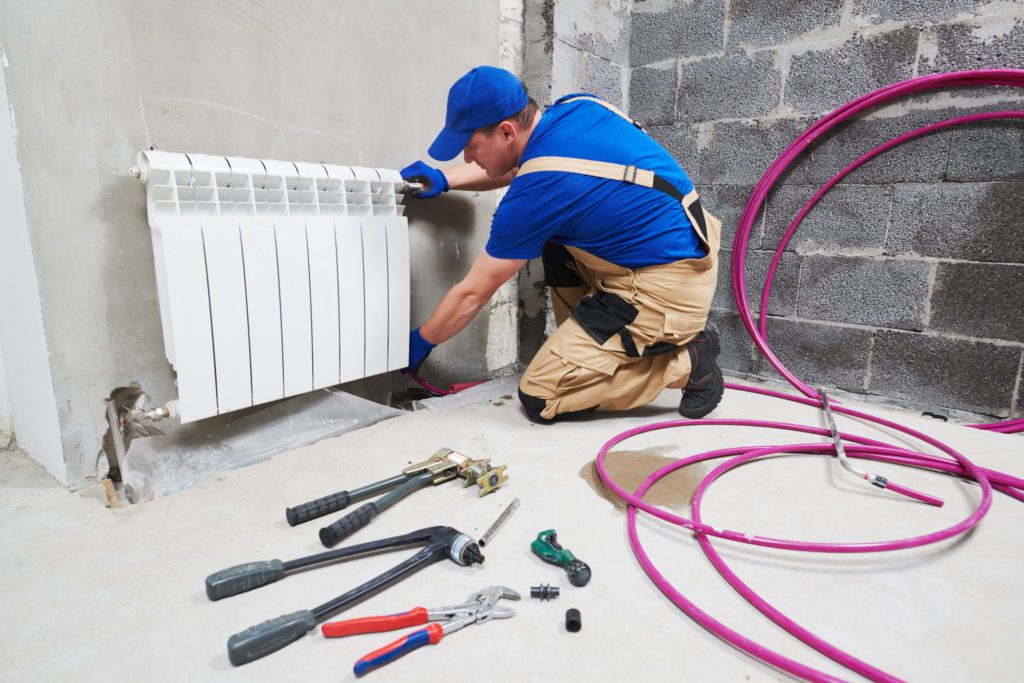
Your HVAC system could last between 12-20 years, so how do you ensure that you get the most from this expensive component in your home. Like most things, regular maintenance helps to extend the life of your HVAC system.
So, should you consider an HVAC Maintenance Plan? Read on to learn how to evaluate an HVAC maintenance plan and determine the right plan for you.
The Right HVAC Maintenance Plan for You
Below are a few factors to consider when choosing an HVAC maintenance plan.
Your Personal Needs
Regular maintenance means cleaner air for you and your family. If your family suffers from allergies or asthma, you will benefit from regular system cleaning and maintenance.
Age of Your System
Newer systems need less maintenance than older systems. So consider the age of your system along with the portion of the country in which you live. Harsh climates can add additional wear and tear on systems requiring more regular maintenance and parts replacements.
Costs Versus Budget
If your HVAC system goes down, how long can you and your family tolerate being without it? There are more upfront costs for a maintenance plan, but many include emergency repair savings if your system goes down. Without a maintenance plan, you may pay a higher one-time visit fee for system evaluation.
All of these factors are important to consider as they relate to your personal budget.
What is Included? What is NOT Included?
Check the fine print, what is included? If emergency visits and regular check-ups are included you are probably better off getting an HVAC maintenance plan, especially if your system is older.
Compare Prices
What is the out of pocket costs for a visit? How many maintenance visits are included in the maintenance plan? How much is your peace of mind worth? All of these are questions that you must answer as you compare plans and prices.
If your system is new and you don't need regular evaluations, a plan may not be the right solution for you. However, older systems, ones that are important to your family's health or comfort all suggest that a maintenance plan can save you money and peace of mind.
Now that you understand the basics of an HVAC maintenance plan, check out our affordable plans to choose the one that works best for you.
Do You Need an HVAC Maintenance Plan in Lee County?
We have been in Lee County for 50 years, we know the area, we know the weather, and we know HVAC maintenance. We pride ourselves on treating our customers fairly and honestly. If you need to establish an HVAC Maintenance Plan, then we are the company for you.
Contact us, George Sr. credits our success to our company-wide philosophy: "We always try, above all, to be honest, and reputable and make every possible effort to put the customer first." find out for yourselves if this is true.
Why is My Air Conditioner Frozen and What Should I Do to Fix It?
When you live in a warmer climate, you depend on your HVAC unit to keep you cool. However, AC units malfunction sometimes, and it's common for them to freeze.
If you had to ask, why is my air conditioner frozen? The solution might be easier than you might think.
In this article, we'll help you identify why your air conditioner freezes.
Read on to get started.
What Causes Your Air Conditioner to Freeze?
There are several factors that can cause your air conditioner to freeze. It's important to rule out all of these reasons in order to get to the root of the problem.
Dirty Evaporator Coils
If the evaporator coils in your AC unit get clogged with dirt and debris, it could restrict the airflow. When this happens, the system often freezes.
Refrigerant Leak
Refrigerant is an important element to keep your AC unit running as it's supposed to. If the refrigerant doesn't flow from point A to point B, it can cause a number of issues with the unit, including freezing.
When the refrigerant leaks, it almost always causes the unit to freeze.
Dirty Air Filter
A clean air filter is necessary for the AC unit to work as it should. However, when excess debris builds in the filter, it stops the airflow.
The restricted airflow will cause the unit to freeze.
What to Do When the AC Freezes?
Once you know that your air conditioner is frozen, there are a few steps you can take to remedy the issue.
Let the AC Thaw
When your AC unit is frozen, the first thing you need to do is let it thaw.
First, you need to turn off the thermostat and turn the fan on. By taking this step, the A-coil will start to defrost. The defrosting process could take a few hours, depending on the unit.
Since thawing the unit will result in some excess water, it's important you locate the dripping pan. Failure to do so could result in water damage and the last thing you need it to deal with another issue.
Check the Air Filter
As we mentioned before, a dirty air filter often causes the AC unit to freeze. If you noticed your unit is frozen, the first thing you need to do is check the air filter.
The solution is quite simple - open the air cover and check the filter. If you notice the filter is dirty, all you have to do is replace it.
Replacing the filter is one of the most inexpensive repairs to the unit.
Start the Unit Again
Once you let the unit thaw and you replace the filter, you can start the unit on again. If the air comes out cool, then you fixed the problem.
However, if the air is room temperature, you might want to call a professional.
Why Is My Air Conditioner Frozen? This Is How You Fix it
Why is my air conditioner frozen? Now that you know the many reasons why your AC unit might be frozen, it's time you try to fix your unit.
If the AC unit is frozen, try checking the filter, turn off the unit or call a professional.
Are you in the Fort Myers or Naples area, and you need an HVAC professional? If so, give us a call today.
Air Conditioning Maintenance Plan Fort Myers
To be sure you get great service from your air conditioner, it means you need to get an AC repair plan. Knowing about how to get this work will help you whether you want the work for your business or home air conditioner.
If you choose a maintenance plan that gives you the best repair service, you can always rely on your air conditioner to work.
Here is what you need to know about having an air conditioning maintenance plan in Fort Myers.
Go Through the Entire List of What is Included in the Plan
Maintenance plans are one of the best things that you can get for your air conditioner. It lets you pay for a subscription plan so that your repair service is paid for ahead of time.
Be sure that you get a list of everything that you'll get with your maintenance plan, and which tiers of plans they have.
The maintenance plan that you get needs to address your air compressor, drain tube and other parts. Ask the air conditioning professional what brand of equipment they use also, so you can read the reviews and make sure that it is quality equipment.
Make Sure it Has Everything You Need
So what should you get from your AC maintenance plan?
Choosing great HVAC service will help you keep your air conditioner at its absolute best. The maintenance plan should at least have carbon monoxide testing, a gas valve inspection, pressure checks, seasonal safety inspections, and air filter changes.
These air conditioning plans are issued in the form of a contract, so you should read through all of the details. It will let you know how many house calls per year you receive as part of the plan, along with a schedule of when you should get the repairs.
Compare between a few different repair plans to be sure that your air conditioner always works. It will save you a lot of trouble during the hot Fort Myers summer season.
Consider the Costs of Air Conditioning Repair Relative to Getting a Plan
If you are comparing and contrasting air conditioner maintenance plans in your city, be sure that you also think about the costs. Compare the price you will pay without a plan versus what you will get as part of your repair plan.
Make the most cost-effective decision so that you can find out how to get repairs without paying too much. The more that you know about your repairs and how much they cost, the better the decisions you will make.
Buy an Air Conditioning Maintenance Plan in Fort Myers
If you're interested in getting an air conditioning maintenance plan in Fort Myers, these are the things you need to know.
Since Fort Myers is known to get heat and sunshine year-round, choosing the right maintenance plan is a great step to take. Our company can assist you if you are trying to buy a repair plan for your home or business.
Schedule your air conditioning services with us when you need help.
Air Conditioning Maintenance Plans
Like many other options in your home, an HVAC system is nothing short of an important asset. So, why not keep it in good use?
An air conditioning maintenance plan saves you money on servicing down the road.
Keeping things up-to-date and in working order means fewer breakdowns. A well-serviced HVAC leads to a reduction in repair costs and utility bills. It also means dwelling in a home with healthy air quality.
It's time to extend the lifespan of your system.
If you've been considering the health of your system, you need to read this. Let's explore the importance of an air conditioning maintenance plan.
Good Air Conditioning Maintenance Leads to Fewer Repairs
As HVAC systems age, normal operations breaks them down. During that process, moving parts—the motor, belts, etc,—wear down.
Regular maintenance leads to less costly repairs.
Keeping a system cleaned and lubricated protects the internal parts of the system. Systematic check-ups on the refrigerant levels and coils keep the system from freezing. All of which can cost you thousands in repair.
Preventative servicing helps you hone in on suspected issues early to avoid major damage.
Improved Performance
A well-maintained system is a high-performing system. Routine upkeep is all about making sure your system operates at peak performance.
Consistent inspections and cleanings ensure the HVAC system performs at higher efficiency levels. In the course of a maintenance appointment, a technician checks the wiring, fuel line, and levels.
They calibrate the unit to check it for future reliability and efficiency. A technician will also inspect for mechanical concerns to identify any needed repairs.
Comfort and Air Quality
One of the most important aspects of an HVAC system is that it blows quality air and provides comfort.
You can't ensure that if you don't schedule planned maintenance. The performance of the system impacts comfort. Dirty coils, ignition problems, and obstructions in the burner corrupts the system.
Issues with the humidity controls ensue, affecting the capacity of the HVAC unit. Also, filthy drain pans and ducts spill allergens into the air, making it unsafe for people with asthma or allergies.
Periodic maintenance restores the unit's performance, improving air quality and comfort.
Reduction in Utility Costs
When in an HVAC unit is not operating at full capacity, it cycles more than usual. A system that cycles more than often burns unnecessary energy, creating more cost.
Having a technician come and calibrate your system, raises the capacity. In turn, the unit cycles less, cutting utility costs significantly.
Get a Maintenance Plan
Regular air conditioning maintenance saves your unit and your wallet. By putting a maintenance plan in place, you preserve the life of your system.
Review the service dates for your unit. If you haven't had a professional give it a thorough inspection, schedule a maintenance appointment right away.
Need more help from a professional? Check out our a/c services and get an expert's opinion about the health of your system.
